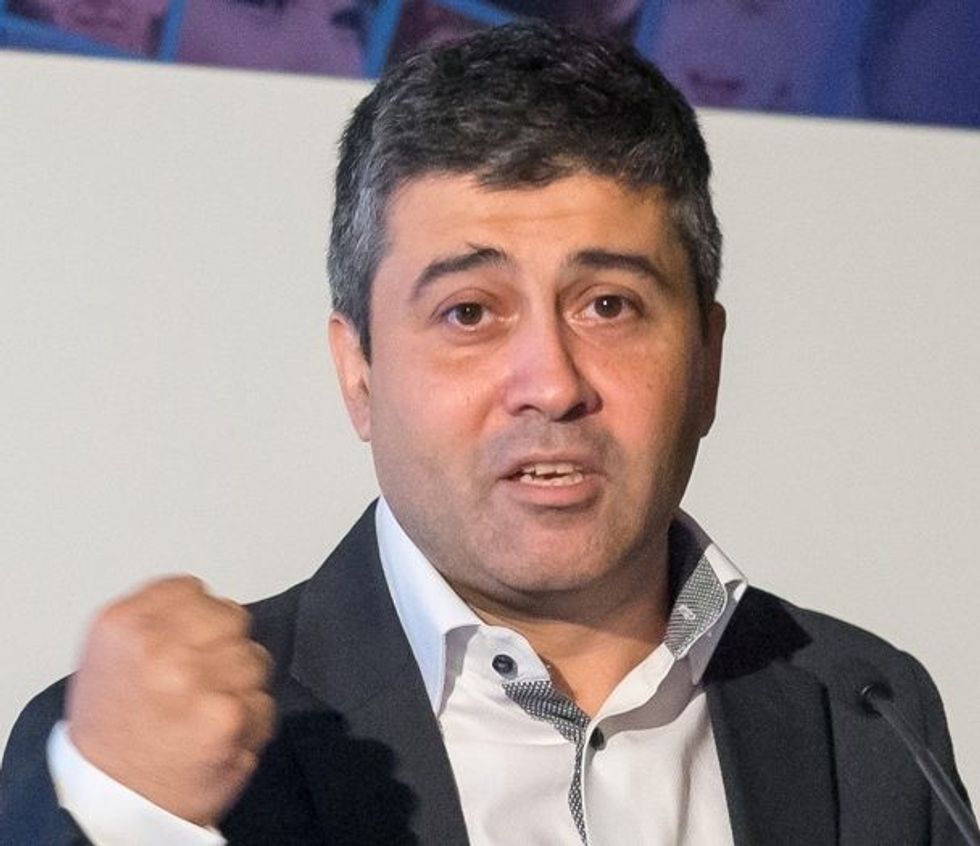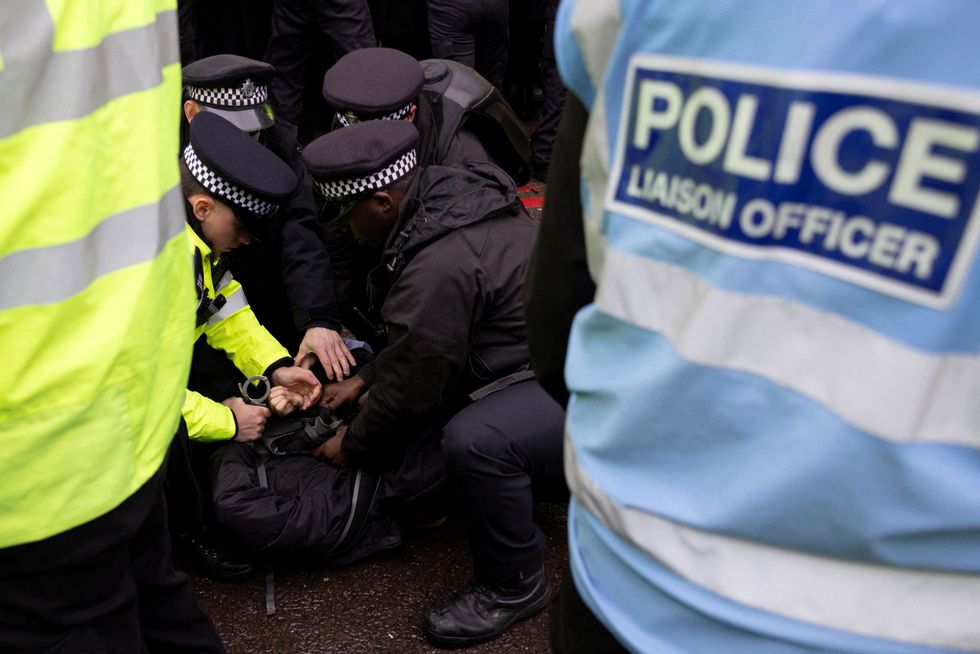ISSUES around integration, if left unchallenged, could lead to deepening divide in community relations such as those witnessed in Leicester last year, according to the thinktank British Future.
In September last year, places of worship and other properties in Leicester came under attack after community tensions rose between Hindu and Muslim groups. Scores of suspects were arrested during the investigation, which police said was fuelled by fake news on social media.
“Britain is a country of good community relations, good interpersonal relations, interfaith relations, most of the time,” said Sunder Katwala, director of British Future.

“Recent clashes do not point toward signs of wholesale fragmentation or polarisation between faith groups, as some political voices would have us believe; indeed, most people within our diverse and multi-faith society continue to live together well.
“But the flashpoint community tensions seen in Leicester do point to a series of longer-term gaps and issues in integration policy that, if left unaddressed, could see a more protracted and deepening divide in community relations, where parallel grievance narratives are left to spread unchallenged.”
Lord Ian Austin, a former minister for housing and planning, will lead an independent panel of experts to understand the origins of the unrest. The team will also explore how similar events can be prevented in the future, both in Leicester and elsewhere and set out proposals for strengthening social cohesion locally.
Communities secretary Michael Gove, who commissioned the review, said the exercise would build a “thorough understanding of the specific events that took place and what can be learned from them”.
Jo Broadwood, chief executive of Belong – The Cohesion and Integration Network, said the government needs to take a long-term approach to what happened in Leicester and continue to put resources into ensure social cohesions in communities across the country.
“If you look back over the last 10-20 years, what happens is you have a reaction from government following some kind of disturbance or upset or violence. The initiative continues for a couple of years and then the government loses interest and thinks it’s sorted out and resolved,” said Broadwood at an event hosted by British Future last week.
“However, that investment is an ongoing process. Social cohesion is different in different places. It’s a dynamic and complex set of relationships that is profoundly influenced by local, national and international events and politics.
“Our social peace is something that requires ongoing attention and focus. It’s a bit like a bank of good relations, trust, strong local network, strong bridging. You need to keep paying into that bank in order to be able to draw on it in in times of crisis.”

With a population of 360,000, the city is described by British Future as a ‘community of communities’ in which there is no majority group.
One in four is Christian, another one in four Muslim and one in five, Hindu, while a quarter hold no religion.
Recent flashpoints across the city show emerging tensions in Leicester.
In particular, some angry youth seized on south Asian politics, inter-faith tensions and cricket results to stir “them and us” clashes in the city.
British Future said the events in Leicester had exposed new and growing fractures in the city’s community relations between faith groups, as well as between white British and south Asian residents.
Dilwar Hussain, founder and chair of New Horizons in British Islam, a charity that works on Muslim identity, integration and reform, said the media narrative of it being a Hindu versus Muslim issue was “deeply problematic” and that it didn’t do justice to the “complexity of the conflict”.
“Fifteen years ago, we worked with the city council and saw a demographic shift happening and we said, ‘please keep an eye on this’,” Hussain said at the event hosted by British Future.
“Leicester is a city where the demographics are changing and evolving. Immigration happens a lot and there’s higher churn in terms of its population and I don’t think people kept an eye on this.
“On the ground, a lot of this is to do with people not feeling like they are being heard, new people coming into the city and not finding their place, not finding the soft landing. People feeling like others are taking resources from them, or that resources are finite. “If we had better leadership and foresight, we could have invested in projects that build relationships. That sort of investment, sadly, it hasn’t been there for a long time.”

British Future suggested that community building initiatives seek to incorporate voices from the relatively newer migrant groups, such as those arriving from Daman, India, as well as leaders from longerestablished south Asian Hindu and Muslim groups.
Social media was described as being “hugely influential” in escalating the violence with misinformation and disinformation, with some platforms accused of amplifying extreme voices and allowing false information to spread unchallenged.
Research found that real incidents, such as a march to allegedly “intimidate” Muslims and “assert Hindu identity” and a flag being pulled down outside a Hindu temple, became mixed with exaggeration, rumour and myth to push “simplistic” narratives of widespread targeted violence, where only Hindu, Muslim or Sikh grievances counted.
Rumours spread via social media led to “victimhood narratives” among communities caught up in the unrest.
Speakers at the British Future event also claimed that Asian diplomatic missions could have done more to stop the polarisation from spreading further.
“The social media aspect in Leicester shows how rumours and misinformation spreads much more rapidly and that can be really devastating. It can have a real, long-lasting impact on trust and relations,” said Broadwood.
To counter the impact of social media, British Future suggested local councils and central government consider offering greater support to local-led efforts.
“There will be a variety of partners who can help to achieve this, but priority should be given to institutions and activities with greatest reach across the relevant grievance communities,” said Katwala.
“For example, in Leicester, opportunities for future cohesion messaging could include major cricket tournaments, where Leicester CCC could be asked to play a role in hosting and communicating positive messages about community links. Leicester City FC and its foundation will also have strong reach among Hindu, Muslim and Sikh communities and could be brought into communications activity to project a Leicester Together bridging campaign.”
British Future highlighted that in a number of community flashpoints, including in the aftermath of the Leicester protests, leaders consisted of an overrepresentation of older, male interfaith and bridging voices.
Some constructive efforts to defuse tensions, for example through a joint statement across communities, came from a group comprising only men.
British Future recommended that female councillors and community members, who also worked to bring calm to the situation, be given a greater voice.
It also noted an urgent need to recruit and support younger voices, particularly those likely to have greater presence and reach in social media.
Unrest in Leicester, for example, was driven predominantly by younger men, mobilised through social media platforms, who may have had little exposure to the statements shared from largely older faith leaders in print and broadcast outlets.
“Co-ordinated outreach between local authorities, in partnership with schools and faith groups, could help civic and faith leaders strengthen their reach with these groups and equip peers to help call out and challenge polarising voices in their friendship networks,” said Katwala.
“This could involve a proactive approach in the main further education colleges, establishing norms of decent behaviour, stressing more in common messages. he said.
“Secondary schools and colleges could also work with local community leaders to develop young peacebuilder projects in areas facing social segregation or rising tensions. These could help enable interfaith dialogue, as well as addressing potential emerging tensions between young white Britons and other ethnic groups in areas with far-right activity or misinformation campaigns about demographic change.”







 A protestor is detained by the police during a demonstration against the proposed site of the new Chinese Embassy, outside Royal Mint Court, in London. REUTERS/Carlos Jasso.
A protestor is detained by the police during a demonstration against the proposed site of the new Chinese Embassy, outside Royal Mint Court, in London. REUTERS/Carlos Jasso. 













